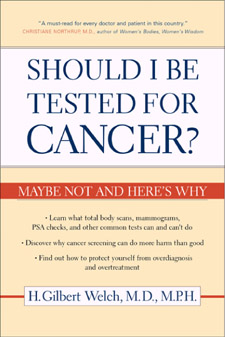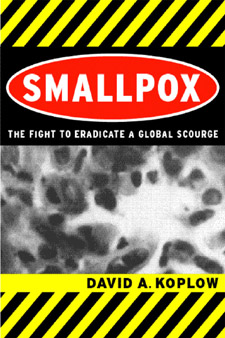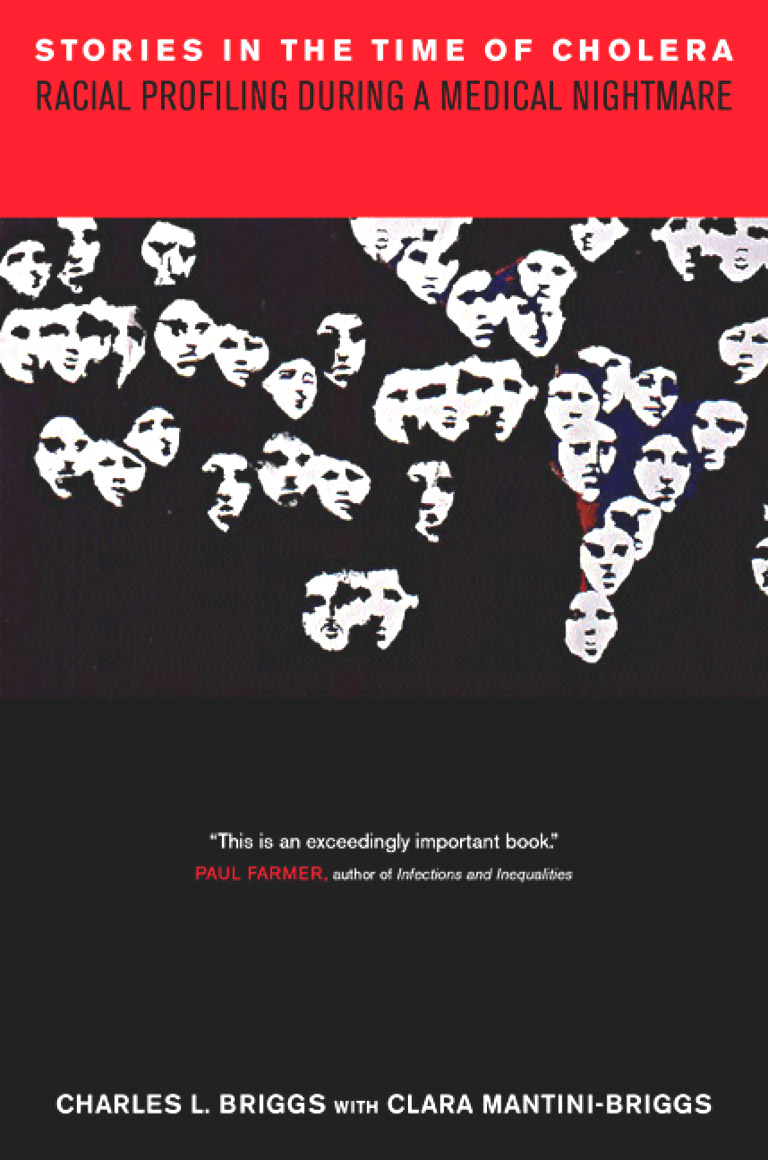formerly eScholarship Editions


|
|
|
|
Your search for
'Disease' in subject
found 3 book(s). | Modify Search | Displaying 1 - 3 of 3 book(s) | |
| 1. |  | Title: Should I be tested for cancer?: maybe not and here's why Author: Welch, H. Gilbert Published: University of California Press, 2004 Subjects: Medicine | Health Care | Disease Publisher's Description: Getting tested to detect cancer early is one of the best ways to stay healthy - or is it? In this lively, carefully researched book, a nationally recognized expert on early cancer detection challenges one of medicine's most widely accepted beliefs: that the best defense against cancer is to always try to catch it early. Read this book and you will think twice about common cancer screening tests such as total body scans, mammograms, and prostate-specific antigen (PSA) tests. Combining patient stories and solid data on common cancers, Dr. H. Gilbert Welch makes the case that testing healthy people for cancer is really a double-edged sword: while these tests may help, they often have surprisingly little effect and are sometimes even harmful. Bringing together a body of little-known medical research in an engaging and accessible style, he discusses in detail the pitfalls of screening tests, showing how they can miss some cancers, how they can lead to invasive, unnecessary treatments, and how they can distract doctors from other important issues. Welch's conclusions are powerful, counterintuitive, and disturbing: the early detection of cancer does not always save lives, it can be hard to know who really has early cancer, and there are some cancers better left undiscovered. Should I Be Tested for Cancer? is the only book to clearly and simply lay out the pros and cons of cancer testing for the general public. It is indispensable reading for the millions of Americans who repeatedly face screening tests and who want to make better-informed decisions about their own health care. [brief] Similar Items |
| 2. |  | Title: Smallpox: the fight to eradicate a global scourge Author: Koplow, David A 1951- Published: University of California Press, 2003 Subjects: Politics | American Studies | Public Policy | Disease Publisher's Description: Though smallpox was eradicated from the planet two decades ago, recent terrorist acts have raised the horrific possibility that rogue states, laboratories, or terrorist groups are in possession of secret stockpiles of the virus that causes the disease, and may be preparing to unleash it on target populations. Because it is a far deadlier killer than other biological warfare agents such as anthrax, and because the universal vaccination against smallpox was halted decades ago, a smallpox attack today would be nothing short of catastrophic. This clear, authoritative study looks at the long and fascinating history of the virus, with an informative overview of the political, biological, environmental, medical, and legal issues surrounding the question of whether or not the virus should be exterminated. The only two known samples of the virus are currently stored in Atlanta and Russia. The World Health Organization has repeatedly scheduled their destruction - an action that would rid the planet of all publicly acknowledged smallpox strains forever. Opponents of this plan argue that by destroying these last samples we are denying the possibility that this unique virus could be turned to beneficial purposes in basic scientific research. Others see the stockpile as part of a deterrent against future germ attacks. Proponents of prompt eradication argue that scientists have already learned all they can from this particular virus, and that by destroying the stockpile we are preventing it from ever falling into the wrong hands. As a thirty-year veteran of arms control issues, David Koplow is uniquely suited to provide readers with an informed and well-considered understanding of the complexities involved in the handling of this deadly virus. [brief] Similar Items |
| 3. |  | Title: Stories in the time of cholera: racial profiling during a medical nightmare Author: Briggs, Charles L 1953- Published: University of California Press, 2003 Subjects: Anthropology | Latin American Studies | Ethnic Studies | Disease | Medical Anthropology Publisher's Description: Cholera, although it can kill an adult through dehydration in half a day, is easily treated. Yet in 1992-93, some five hundred people died from cholera in the Orinoco Delta of eastern Venezuela. In some communities, a third of the adults died in a single night, as anthropologist Charles Briggs and Clara Mantini-Briggs, a Venezuelan public health physician, reveal in their frontline report. Why, they ask in this moving and thought-provoking account, did so many die near the end of the twentieth century from a bacterial infection associated with the premodern past? It was evident that the number of deaths resulted not only from inadequacies in medical services but also from the failure of public health officials to inform residents that cholera was likely to arrive. Less evident were the ways that scientists, officials, and politicians connected representations of infectious diseases with images of social inequality. In Venezuela, cholera was racialized as officials used anthropological notions of "culture" in deflecting blame away from their institutions and onto the victims themselves. The disease, the space of the Orinoco Delta, and the "indigenous ethnic group" who suffered cholera all came to seem somehow synonymous. One of the major threats to people's health worldwide is this deadly cycle of passing the blame. Carefully documenting how stigma, stories, and statistics circulate across borders, this first-rate ethnography demonstrates that the process undermines all the efforts of physicians and public health officials and at the same time contributes catastrophically to epidemics not only of cholera but also of tuberculosis, malaria, AIDS, and other killers. The authors have harnessed their own outrage over what took place during the epidemic and its aftermath in order to make clear the political and human stakes involved in the circulation of narratives, resources, and germs. [brief] Similar Items |